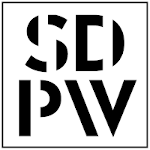Wykaz obszarów badawczych związanych z tagiem Sterowanie:
| # | Obszar badawczy | Dziedzina naukowa |
|---|---|---|
| 1 |
Methods of analysis and optimisation of intelligent complex systems SoS (System-of-Systems) – autonomous interacting technology-intensive systems, communicating and interacting with the environment, involved in real-time decision-making. The primary subject of research are network systems – computer networks, mobile networks, sensor networks (potentially utility networks as well), and systems providing services and applications in those networks – in particular, 5G and Internet of Things services. Research covers problems of design, management and real-time control of systems related to structure optimisation, resource allocation, job scheduling, etc. Analysed are issues of stochastic behaviour, uncertainty, and performance, reliability, robustness and efficiency criteria. Developed are algorithms based on mathematical programming (combinatorial optimization and graph algorithms, in particular), queueing theory, machine learning, data analysis, process simulation), embedded into on-line and off-line system software.
|
|
| 2 |
Analysis, synthesis, design, and optimization of complex dynamical systems, particularly in robotics, machinery, and multibody mechanisms applications. Computational methods for motion planning and control and experimental verification of these methods.
1. Research on kinematics and dynamics of redundant manipulators as well as overactuated and underactuated dynamical systems. Optimal trajectory planning for robots and manipulators, especially in time-varying environments under the real-time requirement. Model-based control methods. Direct human-robot physical interactions.
2. Development, implementation, and experimental verification of computationally effective methods for modeling rigid or flexible multibody systems with redundant constraints. Research on systems with friction in joints—development of friction models embedded in the algorithms for multibody systems computations. Applications of computer simulation methods in the design and optimization of machines and mechanisms.
|
|
| 3 |
Analysis, synthesis, design, and optimization of complex dynamical systems, particularly in robotics, machinery, and multibody mechanisms applications. Computational methods for motion planning and control and experimental verification of these methods.
1. Research on kinematics and dynamics of redundant manipulators as well as overactuated and underactuated dynamical systems. Optimal trajectory planning for robots and manipulators, especially in time-varying environments under the real-time requirement. Model-based control methods. Direct human-robot physical interactions.
2. Development, implementation, and experimental verification of computationally effective methods for modeling rigid or flexible multibody systems with redundant constraints. Research on systems with friction in joints—development of friction models embedded in the algorithms for multibody systems computations. Applications of computer simulation methods in the design and optimization of machines and mechanisms.
|
|
| 4 |
The research area covers issues related to the flight dynamics, control and navigation of manned and unmanned flying objects such as airplanes, rotorcraft, and missiles. The research concerns the development of physical, mathematical, and simulation model of aircraft, analysis of its dynamic properties, and the design of methods and algorithms for automatic control and navigation. Research is aimed at the development and implementation of methods and algorithms of optimal and/or adaptive control in order to effectively utilize the dynamic properties of aircraft for optimization of their flight parameters, including energy consumption, and to reduce the impact of changes in flight conditions or technical parameters on their flying qualities and safety.
|
|
| 5 |
Modeling, control, and simulation of complex systems (ICT, financial engineering, medicine, water resources, etc.), computer decision support systems, recommendation systems, wireless sensor networks, mobile ad hoc networks, optimal resource allocation in data networks and computing centers, parallel and distributed programming, global optimization algorithms, machine learning and Big Data processing, blockchain technologies, cyber security.
|
